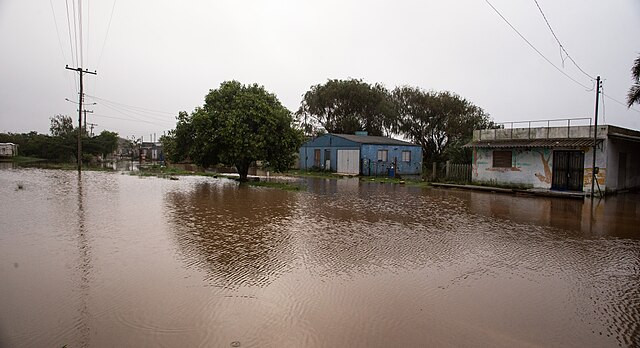The death toll from the heavy rains and flooding in Brazil's southern state of Rio Grande do Sul has climbed to at least 78, local authorities reported on Sunday, with more than 115,000 people displaced from their homes. The situation remains dire as the number of missing persons has increased to 105, up from approximately 70 the previous day, according to the state civil defense authority, which is also investigating whether an additional four deaths are related to the storms.
President Luiz Inacio Lula da Silva arrived in Rio Grande do Sul on Sunday morning, accompanied by most of his cabinet members, to discuss rescue and reconstruction efforts with local authorities. During a press conference, Lula pledged, "Bureaucracy will not stand in our way, stopping us from recovering the state's greatness." State governor Eduardo Leite added, "It is a war scenario, and will need post-war measures."
As the floodwaters continue to rise, volunteers have been working tirelessly to assist in rescue efforts, using boats, jet skis, and even swimming to reach those in need. Fabiano Saldanha, a resident of the state capital Porto Alegre, said he and three friends have used jet skis to save about 50 people from floodwaters since Friday in islands that are part of the city. "The only thing we hear when we enter a street is 'help,' 'help,'" Saldanha recounted.
The persistent heavy rains have driven flooding in more than two-thirds of the nearly 500 cities in Rio Grande do Sul, which borders Uruguay and Argentina. The storms have not only displaced hundreds of thousands of people but have also destroyed roads and bridges in several cities, triggered landslides, and caused the partial collapse of a dam at a small hydroelectric power plant.
As of Sunday evening, more than 400,000 people were without power, and nearly a third of the state's population was without water, according to authorities. In Porto Alegre, the Guaiba Lake breached its banks, reaching the highest water level on record, as reported by the national geological service. The city's international airport has suspended all flights since Friday.
At a makeshift rescue center in Porto Alegre, Kaeli Moraes described being rescued along with her husband and their three children when the water had nearly reached the second floor of their house. "There was flooding in September, then in November, and now this one. It is only getting worse," Moraes lamented.
In the city of Canoas, near Porto Alegre, 76-year-old Julio Manichesque was rescued by volunteers after staying on the roof of his house, where he has lived for 52 years, since Friday. "I have never seen that much water," Manichesque said.
The devastating impact of the floods has garnered international attention, with Pope Francis expressing his prayers for the people of Rio Grande do Sul during his weekly address to crowds in St. Peter's Square in Vatican City on Sunday.
As rescue efforts continue and the death toll rises, the true extent of the damage caused by the heavy rains and flooding in southern Brazil is becoming increasingly apparent. The state government, along with the federal government and volunteers, are working together to provide relief and support to those affected by this catastrophic event.






